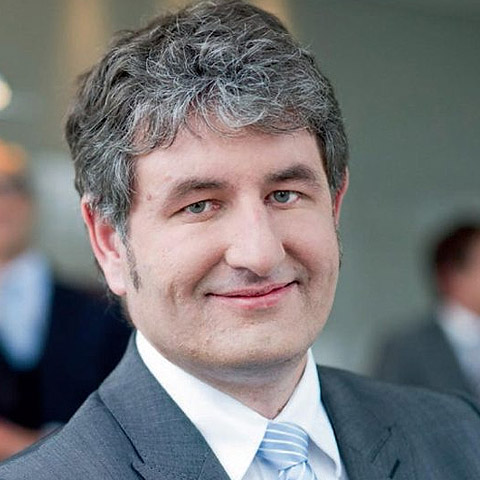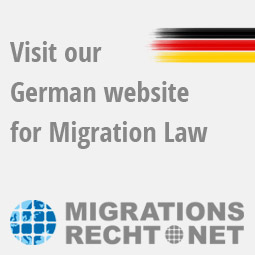The Skilled Worker Immigration Act came into force on 1 March 2020. The aim is to facilitate the recruitment of qualified skilled workers from third countries in line with the needs of the economy.
Within the existing migration policy framework, the Skilled Worker Immigration Act creates the conditions for the skilled workers needed by the German economy to come to Germany. It regulates clearly and transparently who may and may not come for work and training purposes. To this end, the provisions on training and employment in the Residence Act will be completely restructured and comprehensively revised. In addition, the Employment Ordinance was amended accordingly. The focus will be on qualified skilled workers in line with economic needs. These will be defined centrally and for the first time uniformly as skilled workers with vocational training and skilled workers with academic training.
In the competition for the best foreign skilled workers, the necessary structures must also be created in Germany to be able to convince interested skilled workers of the merits of Germany. In order to make administrative procedures more efficient and service-oriented, responsibility for the entry of skilled workers from abroad should be concentrated at central offices. An accelerated procedure for skilled workers will be created to speed up procedures.
According to this, the Skilled Worker Immigration Act, which creates the legal framework for a targeted, demand-oriented management and strengthening of skilled worker immigration, will be necessarily supplemented by accelerated recognition of foreign qualifications, increased promotion of the acquisition of the German language abroad, a strategy to be developed jointly with business for targeted recruitment of skilled workers and improved marketing as well as more efficient and transparent administrative procedures.
Under certain conditions, foreigners staying abroad can apply for an accelerated procedure for the entry of skilled workers by an employer who wishes to fill a specific job. Since the procedure aims to facilitate the visa procedure (prior approval by the Aliens Department), it is not applicable to foreigners who are already staying in Germany.
The procedure pursuant to § 81a of the Residence Act is aimed at attracting foreigners with qualified professional qualifications. Thus, the procedure for the recognition of school-leaving qualifications or the clarification of university admission requirements is not applicable.
The procedure is set in motion by an agreement concluded by the employer with the competent foreigners authority. The latter initiates the recognition procedure and serves as the central contact for employers and competent bodies such as the recognition offices, the Federal Employment Agency and the diplomatic mission abroad. The costs for the accelerated procedure amounting to 411 euros are borne by the employer (§ 81a AufenthG – Residence Act). The fee does not include the costs for the recognition procedure. The basis of the accelerated procedure for skilled workers is the recognition of an existing vocational qualification with a German reference occupation. Within the recognition procedure, a decisive distinction is made between regulated and non-regulated professions.
Non-regulated professions
The procedure is unproblematic for the non-regulated professions. Here recognition is not a prerequisite for practising the profession in Germany, but only for the granting of a residence permit. Without recognition, it is not possible to provide evidence of a qualified professional qualification, which is the basis for issuing a visa. The non-regulated professions include in particular the approximately 350 professions that are trained in the dual system (e.g. industrial mechanic, automotive mechatronics technician, retail salesperson, medical assistant).
A list of all recognised training occupations in the dual system in Germany can be found at: http://www2.bibb.de/tools/aab/aab_start.php
The basis for recognition in the simplified specialist immigration procedure according to § 81a of the Residence Act is the Professional Qualifications Assessment Act (“BQFG”), which is part ob the Assessment and Recognition of Foreign Professional Qualifications Act ("Recognition Act"). Since there is no central office in Germany that is responsible for all inquiries regarding the recognition of foreign vocational qualifications, the portal "Recognition in Germany" was set up on behalf of the Federal Ministry of Education and Research (BMBF) (www.anerkennung-in-deutschland.de). This portal provides recognition seekers with the office responsible for their request and answers to their questions on recognition procedures.
Under the Professional Qualifications Assessment Act (BQFG), the German Chambers of Industry and Commerce are generally responsible for the equivalence assessment of training occupations in the dual system. The IHK Foreign Skills Approval (IHK FOSA) is the nationwide competence centre of German Chambers of Industry and Commerce for determining the equivalence of foreign vocational qualifications. It accepts applications for recognition and compares the extent to which foreign professional qualifications can be classified as equivalent to corresponding German professional qualifications.
.
Regulated professions
Recognition for regulated professions remains problematic. There are already extensive provisions of European law for recognition (especially the EU Recognition of Professional Qualifications Directive 2005/36/EC). The national law on the recognition of qualifications opens up the existing regulations for the implementation of the directive to people and qualifications from countries outside the EU (third countries) as far as possible and necessary.
Regulated professions are professional activities whose access to or pursuit of which is subject by law, regulation or administrative action to possession of specific professional qualifications. The pursuit of the profession is subject to the use of a professional title which is restricted to persons by law, regulation or administrative provision. They also possess certain professional qualifications (§ 3 paragraph 5 BQFG).
The Recognition Act refers, among others, to the following regulated professions (not exhaustive): doctors, dentists, veterinarians, psychotherapists, nurses, geriatric nurses, midwives, physiotherapists, MTAs, PTAs, physiotherapists, dieticians, occupational therapists, speech therapists, orthoptists, podiatrists, tax and business consultants, lawyers, notaries, legal practitioners, master craftsmen in the trades requiring authorisation, civil servants, driving instructors.
A list with all professions that are regulated in Germany can be found at: http://ec.europa.eu/internal_market/qualifications/regprof/index.cfm?fuseaction=regProf.listCountry
In the case of regulated professions, for which access to the profession is regulated by the state, competence is determined by the relevant specialist legislation and the provisions of the federal states.


